Resortecs x Sioen: The start of a European consortium for workwear textile waste management
Resortecs, a leader in textile eco-design and end-of-life waste management, partners with Sioen, a global leader in technical textiles and protective clothing, to create workwear that combines durability with circularity. This collaboration is a major milestone in developing workwear that meets the highest safety standards while being designed for disassembly and recycling at the end of its lifecycle.
Under the agreement, Sioen will be integrating Resortecs’ Smart Stitch™ heat-dissolvable threads into its workwear production. This enables the creation of eco-designed garments that can be efficiently disassembled and recycled without compromising quality, comfort, nor protective functionality. Resortecs, on the other hand, will offer its comprehensive textile waste management service, that includes the disassembly and sorting of the discarded and returned textile products, as well as facilitating the recycling of the sorted textile materials.
Bart Vervaecke, CEO of Sioen’s Protective Clothing division, commented:
“Sioen together with Resortecs makes a big step in ready-to-dismantle garments with this cooperation. We are proud that with our support we can enable Resortecs to install their EU-based disassembly line. Resortecs’ technology will play an important role as a fully integrated part of our sustainable strategy at Sioen, drastically improving the end of life solution for our garments.”
The beginning of a textile waste management circularity consortium in Europe
This collaboration lays the foundations of a Resortecs-led consortium in the Benelux and France regions for end-of-life textile waste management of workwear. The consortium will unite the efforts of workwear manufacturers, recyclers, government agencies, and Resortecs, to facilitate an operationally optimised and financially viable circular textile waste-management solution for complex apparel.
At the heart of the consortium is a Smart Disassembly™ line, with an annual processing capacity of 3000 tons, that will be placed and operated in Belgium by Resortecs by the end of 2025. The Smart Disassembly™ pre-processing line will integrate with existing sorting and collection infrastructure, as well as current and upcoming recycling technologies.
Resortecs’s holistic waste management solution uses an innovative technology to solve a critical challenge in textile recycling. By automatically eliminating trims that block recycling and reclaiming double the amount of a product’s textile content, up to 15x faster, Resortecs facilitates circularity on an industrial scale. As a result, high-performance workwear, along with other textile products like mattress covers and fashion garments, can now be disassembled and recycled more effectively.
Workwear manufacturers operating in Belgium, Netherlands, Luxembourg and/or France can now take part in the consortium by simply producing their textile products with the heat-dissolvable Smart Stitch™ sewing threads. Once those textile products have reached their end-of-life, they are delivered to Resortecs for disassembly, sorting, and recycling. Get in touch to learn more.
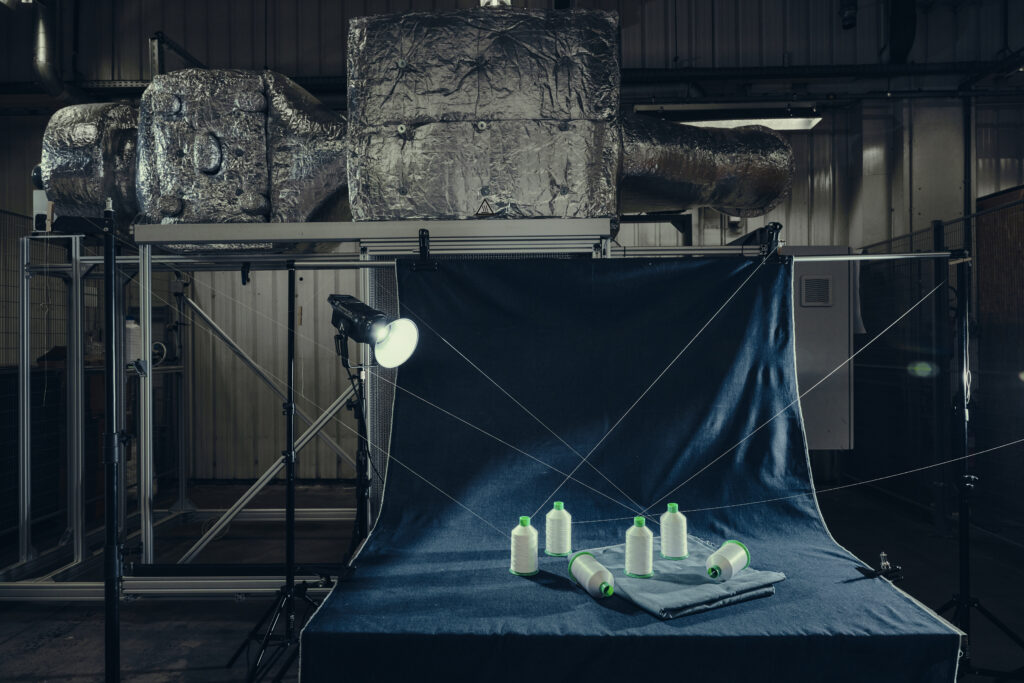
A new circular standard for protective textiles
This collaboration marks a crucial step towards setting circularity as the new standard in the protective clothing and technical textiles sectors, with the goal of producing over half a million of fully recyclable garments with Sioen in the coming 3 years.
Cédric Vanhoeck, CEO and co-founder of Resortecs, commented:
“As we drive circularity in protective textiles, we’re challenging industry norms. Many believe that circular design can’t align with safety standards, but we’re proving otherwise.This collaboration shows how innovation is key in the sector for building a more sustainable future without technical compromises.”
By combining Sioen’s expertise in protective gear with Resortecs’ cutting-edge Design-for-Disassembly technology, the partnership is setting a precedent for workwear that protects both workers and the environment.
“It’s galvanising to see one of the biggest workwear players in Europe supporting our efforts in creating a pan-European network of disassembly and pre-processing infrastructure. We are actively looking for other market leaders in other European regions such as DACH, Iberian Peninsula, and Scandinavia with whom we share the same vision in rejuvenating the European textile industry”, added Cédric Vanhoeck.
About Resortecs
Resortecs® offers pre- and post-consumer textile waste management services for the fashion, workwear, bedding and automotive industry. The company offers heat-dissolvable stitching threads (Smart Stitch™) and thermal disassembly systems (Smart Disassembly™) that enable easy, automated textile recycling on an industrial scale. Resortecs’ mission is to lead the textile industry towards full circularity by facilitating Design-for-Disassembly (DFD).
About Sioen
Sioen is a global leader in technical textiles, colouring solutions and protective clothing, providing high-performance solutions for a wide range of industries, including workwear, firefighting, military, and forestry. Dedicated to innovation, Sioen combines advanced materials and cutting-edge designs to ensure maximum safety and durability, all while striving to promote sustainability through the development of circular products.
More information about Sioen can be found online at: https://sioen.com/en
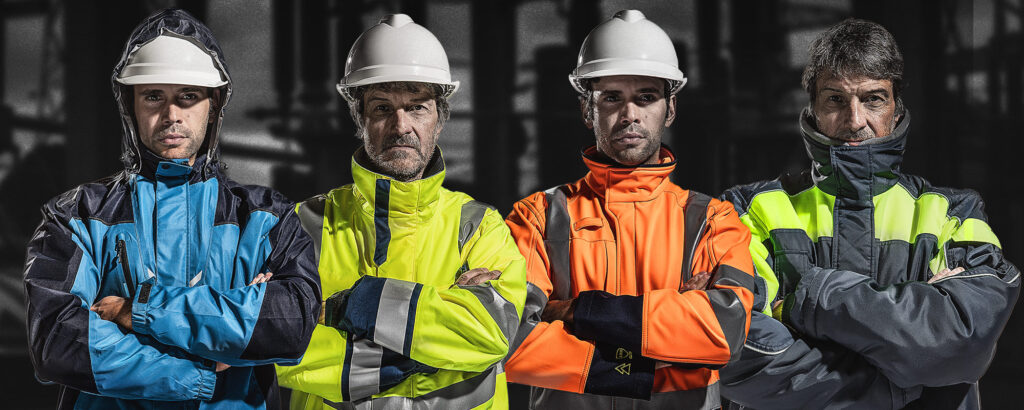
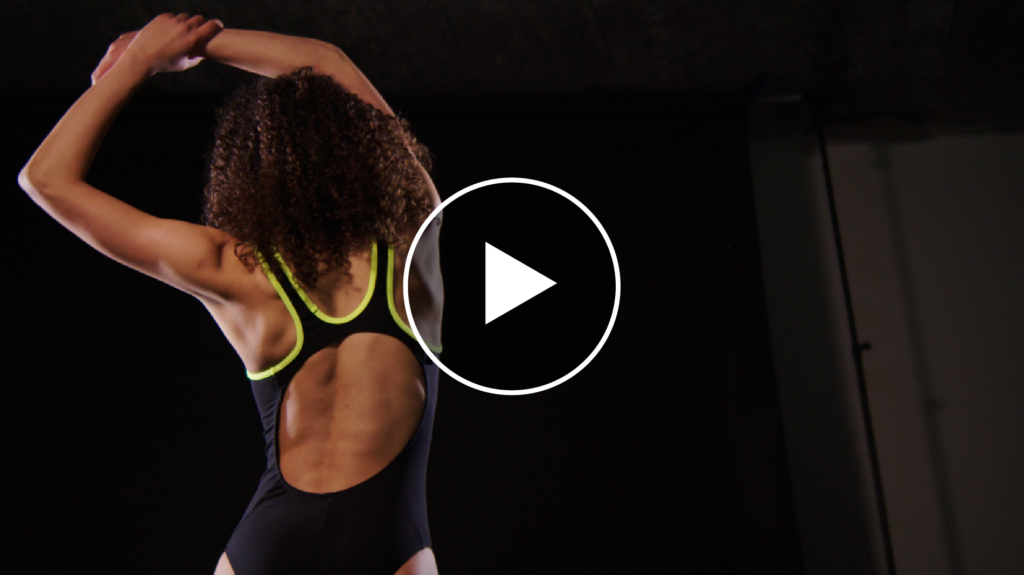
Resortecs has joined forces with Decathlon, the global leader in sports equipment and apparel, to develop a fully recyclable swimwear collection without compromising performance, functionality, or aesthetics. This collaboration blends state-of-the-art technology with high-performance design.
Acerina Trejo Machin, the Chief Technology Officer at Resortecs, explains, “We all know that a high percentage of elastane prohibits the recycling of fabrics, but eliminating elastane lowers the functionality and performance of a garment. To balance performance and recyclability, Decathlon developed Negombo, a fabric ensuring elasticity without the use of elastane.”
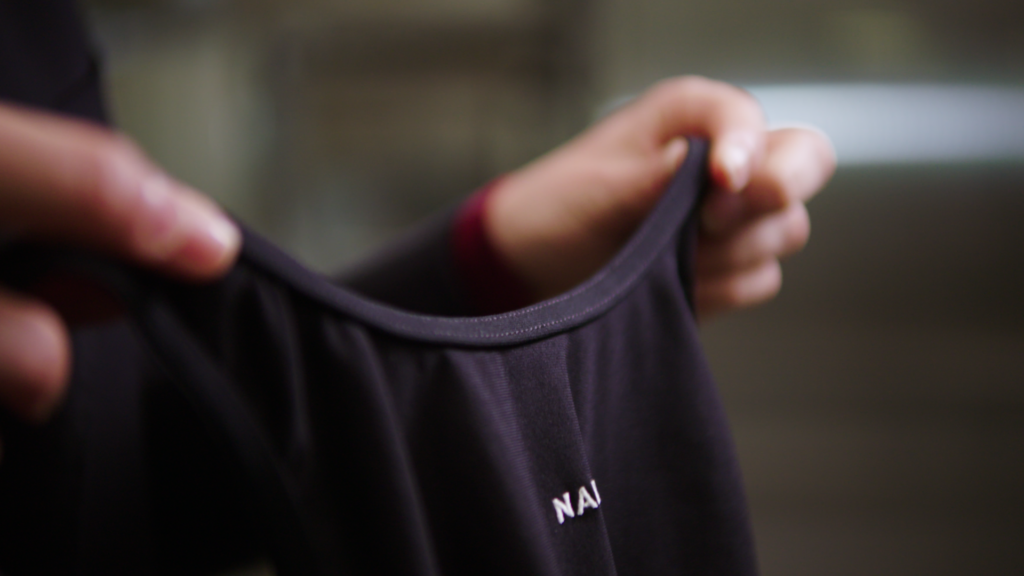
However, creating a swimwear garment with a recyclable fabric alone isn’t enough to meet the required performance and comfort, for which elastic bands are needed. Those elastic bands are not processable by recyclers and block the recycling of the swimwear. This is where Resortecs comes into play. Resortecs’ Smart Stitch™, combined with Smart Disassembly™, enables the efficient separation of the elastic bands from the main fabric at the end of the garment’s life cycle.
Acerina elaborates, “Resortecs’ active disassembly process ensures the maximum recyclability rate of the swimwear garment. Our technology allows for fully automatic disassembly, without any manual intervention, at a scale of up to 10 tons a day. This results in an impressive 63% increase in material recovery and is 10 times faster than conventional methods.”
The synergy between Resortecs and Decathlon allows for the creation of swimwear that is not only high-performing but also fully recyclable, without making any compromises in design, durability, or comfort.
Closing the loop has never been easier. By incorporating Resortecs’ disassembly solution, product designers can ensure circularity while focusing on their ultimate goal: creating garments that best fit their customer needs.
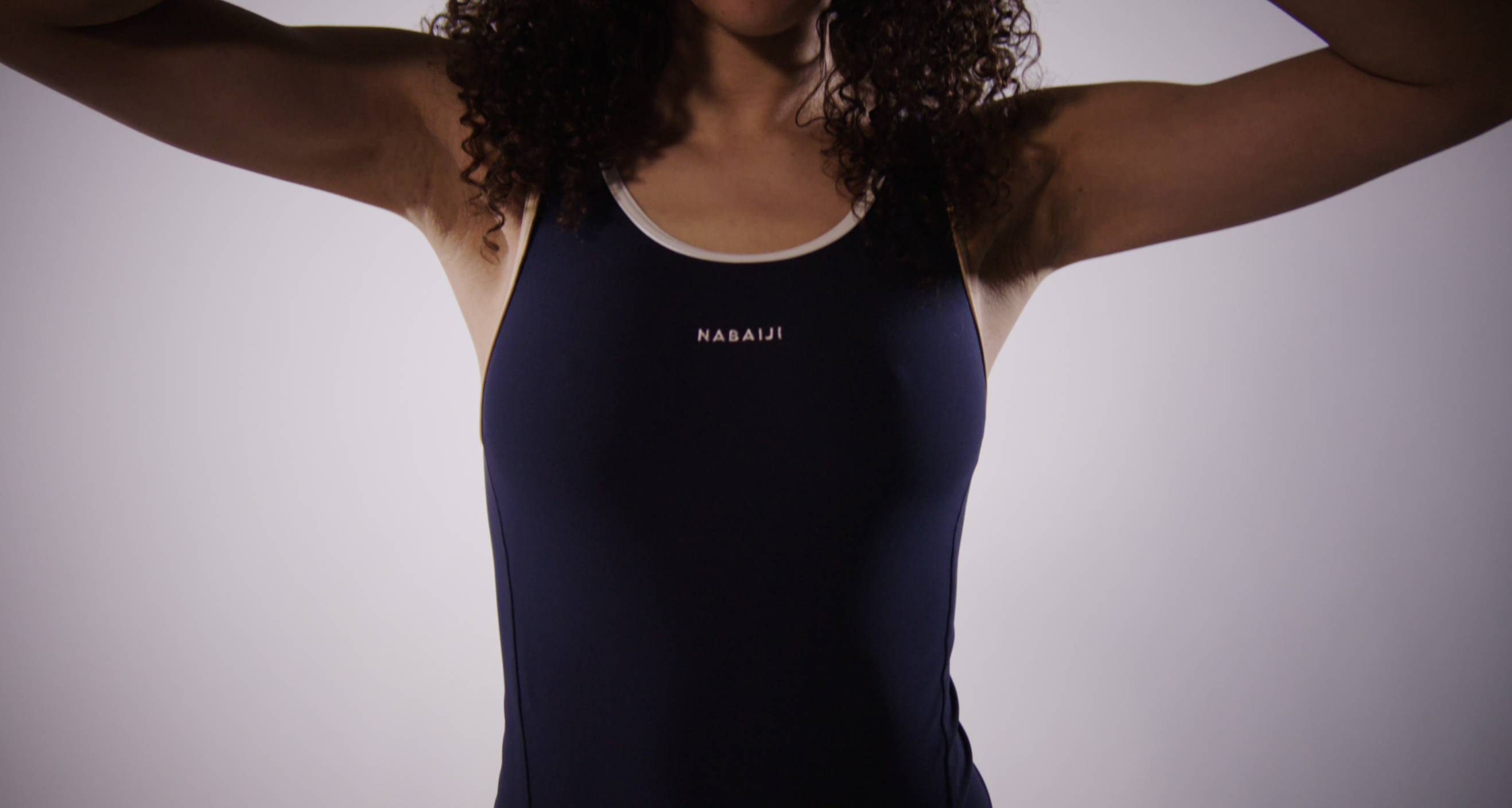
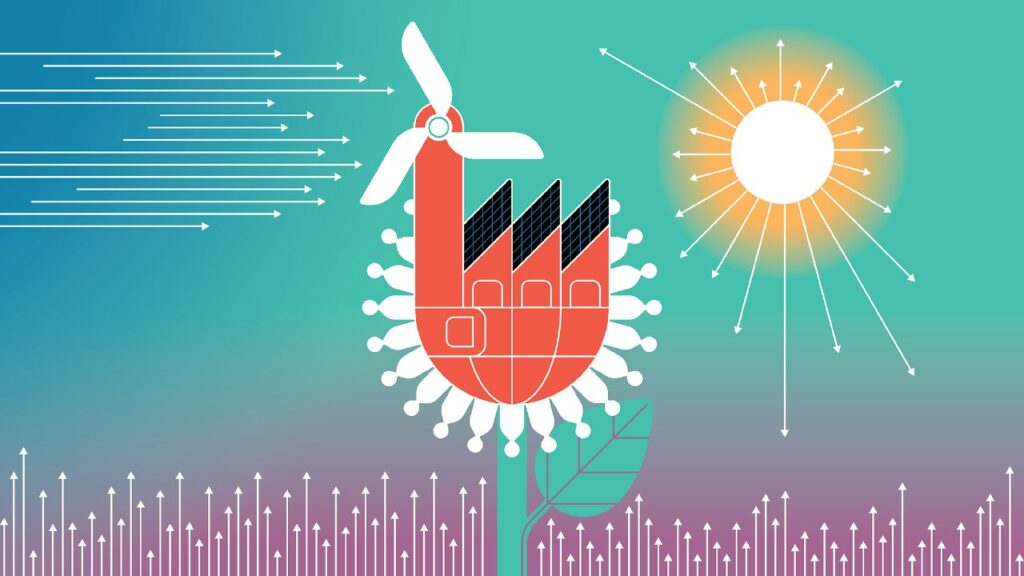
©Filip Ysenbaert
De Tijd and its French-speaking counterpart L’Echo have proudly unveiled their esteemed selection of 30 Belgian companies leading the charge in combating climate change. Under the banner of “Changemakers,” this initiative celebrates organizations showcasing exemplary commitment and innovation in environmental stewardship. Among these distinguished nominees stands Resortecs, alongside other strong innovators like Purfi, Renewi, and Protealis.
The Changemakers initiative aims to spotlight companies that excel in leveraging technology, products, services, or business models to tackle climate change and protect the environment. Acknowledging the pressing need for collective action, De Tijd and L’Echo underscore the pivotal role of businesses in addressing this global challenge.
The nominated companies represent diverse sectors, including energy, software, construction, food, textiles, waste management, and recycling.
“Climate change stands as one of the most critical economic and societal challenges of our era,” states Isabel Albers, Editor-in-Chief of De Tijd and L’Echo. “We firmly believe that the innovative spirit and entrepreneurial drive of our companies are essential in tackling these challenges.”
Under the guidance of environmental economics professor Steven Van Passel from the University of Antwerp, a professional jury will select two standout companies – one startup and one established enterprise – as the ultimate Changemakers. Additionally, De Tijd and L’Echo subscribers will have the opportunity to cast their votes for their preferred Changemaker.
The distinguished jury panel includes industry luminaries and experts such as Julie Lietaer (European Spinning Group), Piet Colruyt (Impact House), Ignace Schops (Bond Beter Leefmilieu), Bertrand Piccard (Solar Impulse), Stéphanie Fellen (Smart2circle), François Gemenne (University of Liège), and Julien Pestiaux (Climact).
Voting for the Changemaker awards is now open to subscribers, with the winners set to be announced on March 12.
For more information about the Changemakers initiative and to cast your vote, visit Changemakers.be and tijd.be.
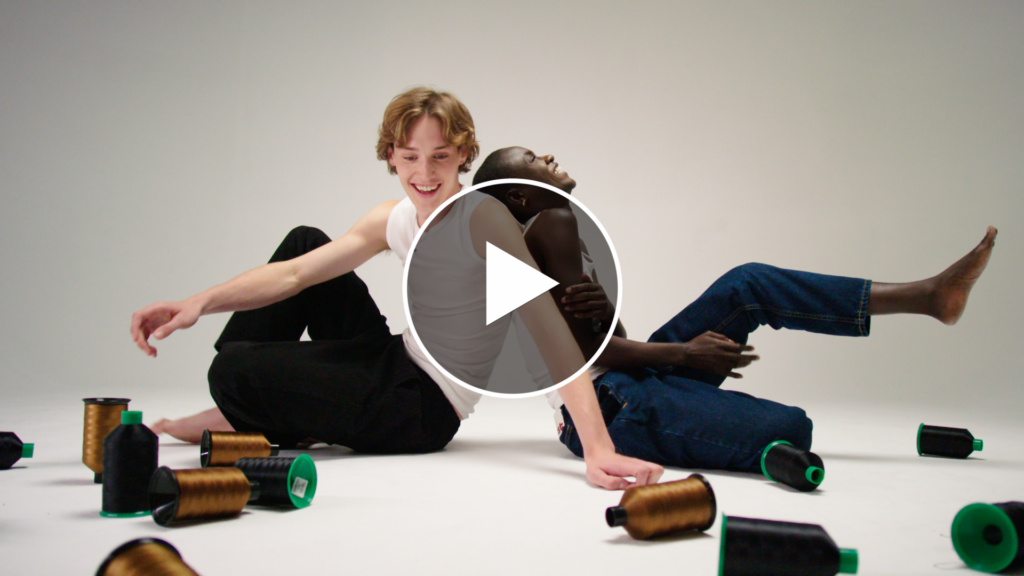
HNST Studio, the Antwerp-based label dedicated to creating jeans that embody transparency and circularity, partners with Belgian eco-design innovator Resortecs to launch new products made to be unmade—easy to disassemble for repair and recycling at the end of life.
The partnership debuts with the newly introduced Geri (for women) and Simon (for men) pants: crafted with up to 70% recycled cotton, these are HNST’s first jeans to feature an elastic waistband and drawstrings for unparalleled day-to-day comfort and flexibility.
Completely eco-designed for recycling, the jeans’ waistbands are stitched using Resortecs’ Smart Stitch™, an award-winning thread engineered to disappear under heat. This thread change at the design phase ensures that the jeans can be disassembled without manual intervention at the end of their lifecycle—allowing for their recyclable fabric to be automatically sorted out of the non-recyclable materials added to the waistband for more comfort.

“Our other jeans didn’t have elastic waistbands because they would be critical blockers for recycling. Collaborating with Resortecs allowed us to explore new possibilities to give our customers more comfort without compromising our non-negotiable commitment to circularity” stated Eva Engelen, Sustainability and Product Manager at HNST.
“We are two Belgian innovators trying to rewrite the future of fashion in a circular way,” said Cédric Vanhoeck, CEO at Resortecs. “This partnership with HNST showcases how our technology can unlock new possibilities for fashion players that want to design for recycling while keeping the creativity, functionality, and quality of their products”, he added.
The Simon and Geri pants are just the first drop of the HNST x Resortecs partnership. Both companies are committed to further integrating Resortecs’ design-for-disassembly solutions into other HNST designs, solidifying their shared vision of establishing circularity as the standard in the fashion industry. Consumers everywhere can now shop the collection at letsbehonest.eu and at select independent retailers in Europe, North America, and Japan.
Resortecs has partnered with BekaertDeslee, a global leader in the production of mattress textiles, covers, and modern sleep solutions. Together, both companies are taking Design for Disassembly beyond fashion to offer a groundbreaking solution for mattress cover recycling – reducing waste and increasing the recyclability of one of the most complex textiles products.
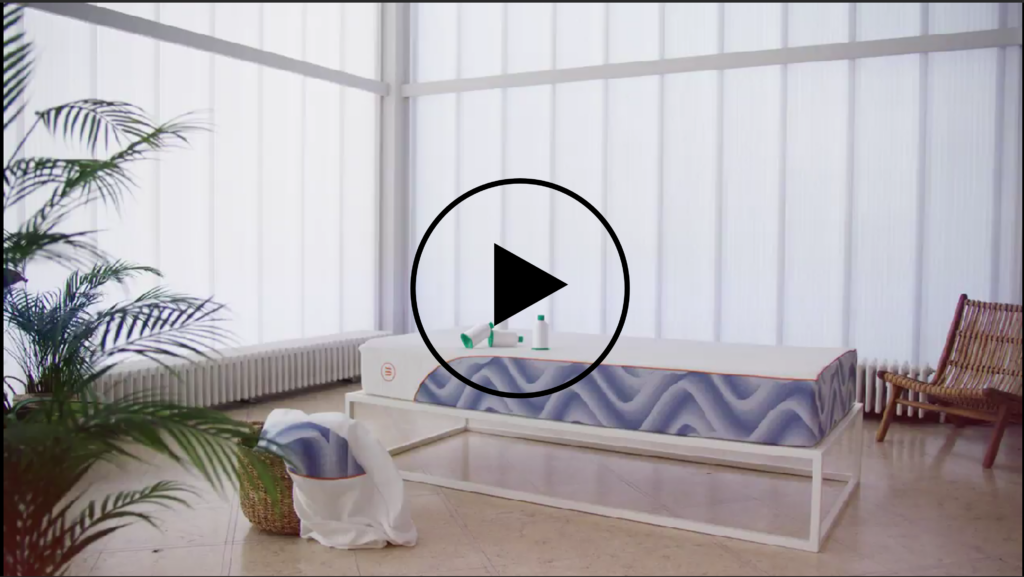
Currently, less than 1% of all textiles are effectively recycled. The remaining 99% end up landfilled or incinerated. The challenge of disassembling and sorting multi-material textile products is largely behind these staggering figures. In the case of mattresses, the textile cover is especially difficult to recycle due to its mixed materials and several components.
To tackle that, Resortecs and BeekaertDeslee have developed a unique and cost-efficient solution to make mattress covers that are made for being unmade. With the ultimate goal of easily dismantling, sorting, and recycling as much fabric as possible, BekaertDeslee will allow its clients to make mattresses using Resortecs’ Smart Stitch™ heat-dissolvable threads. The two companies have been working together since 2022 to create the first multi-material covers designed for industrial-scale disassembly and recycling.
At the end of the cover’s life, mattress brands will be able to use Resortecs’ low-emission Smart Disassembly™ systems for easy pre-recycling disassembly. This will help the industry to avoid polluting end-of-life processes (e.g. incineration), boost its recycling rates, and reduce each product’s carbon footprint.
As a circularity leader, Resortecs sees the partnership with BekaertDeslee as a significant step towards achieving industry-wide textile circularity. The two companies will continue to work together to develop innovative solutions that reduce waste, increase recyclability and promote a greener future for the industry and the planet.
Resortecs is one of the 13 winners of the Make it Circular Challenge!
On May 3, the 13 winners of the Make it Circular Challenge were announced. A total of 650 circular initiatives from over 20 different countries participated in the highly competitive challenge organized by the IKEA Foundation and What Design Can Do.
According to the challenge’s international jury, Smart Stitch™ and Smart Disassembly™ “represent the very best of design innovation and have the potential to make a significant impact in promoting sustainability and circularity.”
The Make it Circular Challenge
The competition was launched last year by WDCD and the IKEA Foundation to identify and support some of the world’s most promising circular innovations and enterprises. From hundreds of entries worldwide, 13 exciting visions for a restorative and regenerative future were selected, from seaweed packaging to waste-based textiles and upcycling marketplaces.
In addition to a €10.000 prize fund, the winners of the Make it Circular Challenge will have access to a six-month-long development program. The program was co-created by experts from the global Impact Hub network, providing the winning teams with the expert mentorship, guidance, and tools they need to grow their businesses and expand their impact on the world. The International Jury, consisting of 11 influential figures in circular design and entrepreneurship, including Bas van Abel (Fairphone), Corinne Gray (Unreasonable Group), Arthur Huang (Miniwiz), and Tamara Streefland (Built By Nature), was responsible for determining which of the 50 nominees had the most potential and would best benefit from this development program.
Selected by Secrid
Resortecs is also one of the three special projects to receive additional press and assistance. Secrid, a carbon neutral wallet producer, has chosen the 3 winning projects as part of their Impact Fund program, pledging to devote 1% of its revenue to bringing together designers and supporting their efforts to create products that enhance the planet’s natural and social equilibrium. By supporting Resortecs, Secrid aims to accelerate the development of the next generation of designers and promote change in our industries.
• Seed investment and EIC grant combined, the startup is tapping into €4.7M to boost production in 2023 and increase tenfold its disassembly capacity in 2024.
• Belgian Prime Minister, Alexander De Croo, highlighted the importance of funding circular entrepreneurship in a visit to the startup’s warehouse in Brussels.
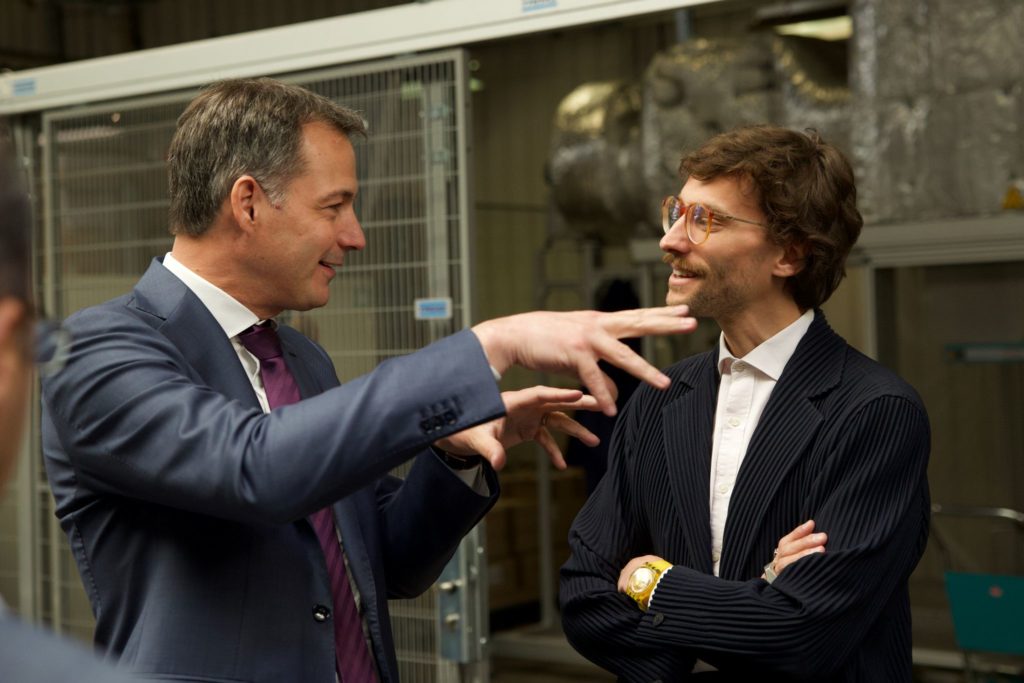
BRUSSELS, BELGIUM – 26 April, 2023 – Belgian startup Resortecs has raised €2.2 million in a seed investment round led by Brussels-based ScaleFund and finance&invest.brussels. Founded in 2017, the fashion tech company develops design-for-disassembly technology to make textile recycling fast, easy, and cost-efficient.
makesense_invest, AFI Ventures (the impact arm of Ventech), Trividend, and PDS Limited also joined the funding round, which follows a €2.5 million grant received from the European Innovation Council (EIC) in 2022. In total, Resortecs is tapping into €4.7 million to boost production this year and finalize the development of a continuous disassembly line, scaling up tenfold its pre-recycling processing capacity to 10T/day in 2024.
Currently, less than 1% of fashion’s production is recycled, meaning a yearly loss of materials worth €500 billion and placing the sector in the world’s top 5 polluting industries. Behind these figures is the complexity of sorting recyclable and non-recyclable materials.
With Smart Stitch™ (heat-dissolvable thread) and Smart Disassembly™ (industrial-scale thermal disassembly system), Resortecs enables brands to make textile products designed to be easily sorted and disassembled for recycling. Bershka, Decathlon, and H&M already use Resortecs’ Smart Stitch™ heat-dissolvable threads in products sold in over 60 countries.
“Our goal is to reduce the textile industry’s carbon footprint by 40 billion tonnes of CO2 by 2040. For that, we have to think big and take design for disassembly beyond fashion. Our headcount has doubled in less than 6 months. In just a few weeks, Smart Stitch™ will also be found on the world’s first mattress covers designed for disassembly, made in collaboration with Belgian sleep industry leader BekaertDeslee.” – explains Cédric Vanhoeck, Resortecs’ co-founder and CEO.
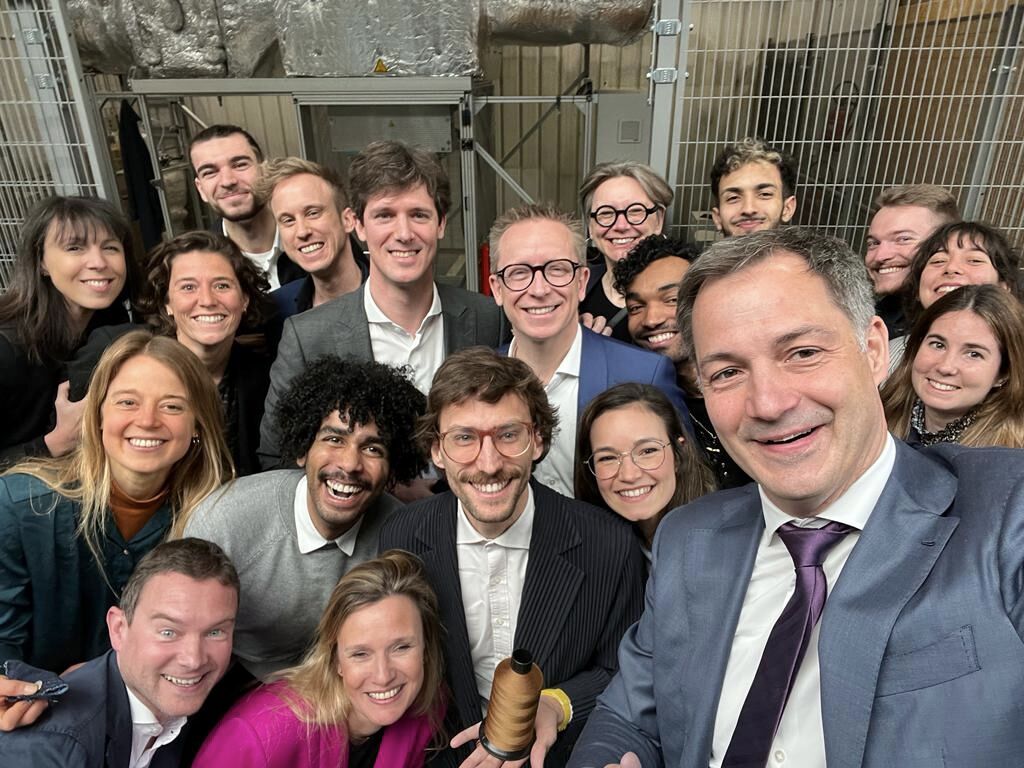
The Belgian Prime Minister, Alexander De Croo, visited the startup’s warehouse in Brussels on 26 April and highlighted the importance of investing in Belgian circular entrepreneurship:
“As Europe does not have many natural resources, we have to make a choice: we can either look at everything we have already produced as waste, or consider it as potential future raw materials to protect the planet. Innovations like this are key to strengthening our industrial competitiveness. Resortecs is a fine example of green growth and Belgian innovation that is ready to take the world!”

Resortecs, Tomorrowland, Paul Bowens, and Amandine David are the big winners of the Henry van de Velde Awards 2023 !
On Tuesday evening, February 7, all winners of the Henry van de Velde Awards received their coveted prize at Bozar in Brussels. In addition to the announcement of who won gold, silver and bronze within the 9 project categories, the winners of the 4 main prizes and the Public Award were also announced.
The jury of the Henry van de Velde Awards, one of the largest award ceremonies in Belgium, “believes in the impact and growth of the company and hopes that their innovative developments will now also find their way into the design world,” according to the statement about the award ceremony.
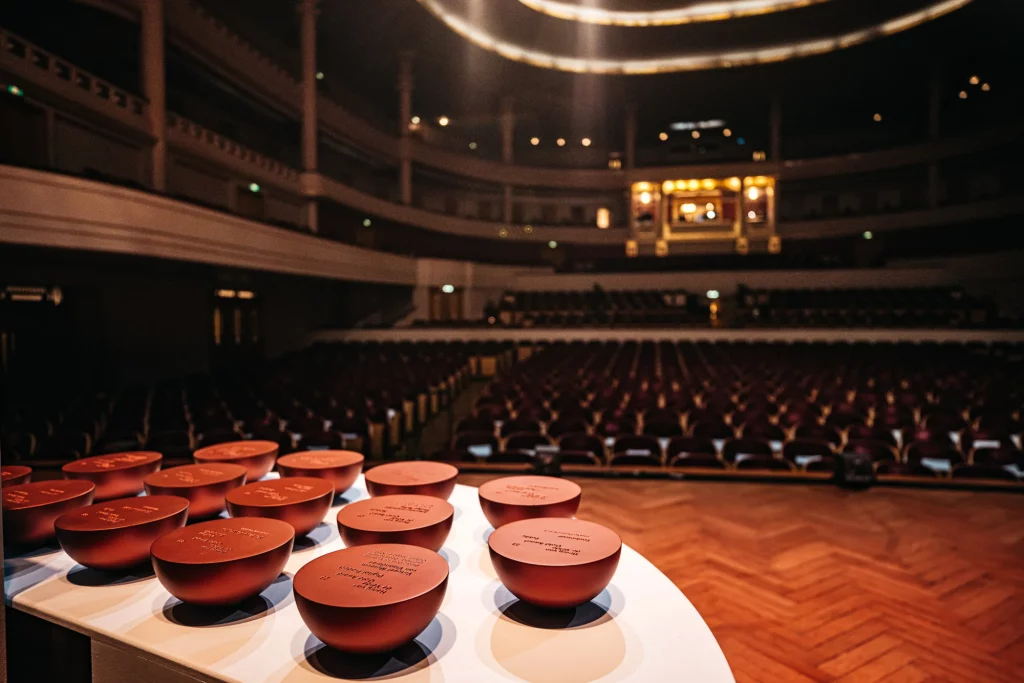
Henry van de Velde Award for Resortecs
The Henry van de Velde Awards are often referred to as the Oscars of design in Flanders. They are the oldest (this year is the 29th edition), best known and most prestigious design awards in Belgium. Winning an award, therefore, opens many doors, at home and abroad. The awards are organized annually by Flanders DC, but the selection of the winners is always done by a carefully composed jury. In addition to chairman Chris Baelus, members of the jury this year included Herman Konings, Katrien Laporte, Max Borka, Elien Haentjens, Ronald Bastiaens and Siegrid Demyttenaere.
Resortecs was considered by the jury a role model in applying the principles of ecodesign. In 2021, Resortecs was also crowned Changemaker of the Year at the Belgian Fashion Awards.
Other parties from the fashion and textile industry can be found among the other winners of the Henry van de Velde Awards. For example, Amandine David received the Young Talent Award. David specializes in traditional crafts such as weaving and pottery in combination with digital production. MyBlanket won Gold in the Consumer Awards category for a rain cover that wheelchair users can attach over their legs without assistance or standing up. No Time To Waste won the Design Research Awards category, which uses fluff, a by-product of the textile industry, and explores its possibilities.

The Henry van de Velde Awards are organized annually in Flanders DC and were made possible thanks to the support of the Flemish Agency for Innovation & Entrepreneurship (VLAIO), Bozar, Z33, the Public Waste Agency of Flanders (OVAM), the Flemish Environment Agency (VMM) and Bokrijk.
More information via https://www.henryvandevelde.be/
BRUSSELS, BELGIUM – Wedze, the winter-sports brand of French giant Decathlon, partnered with Belgian innovator Resortecs to launch a fully recyclable ski jacket using the start-up’s design-for-disassembly technology.
Different from normal ski jackets, which are extremely difficult to recycle due to their complex material composition, this flagship is made of 63% recycled polyester, and 23% of the fabrics are dyed using dope dyeing – one of the most water-efficient dying techniques.
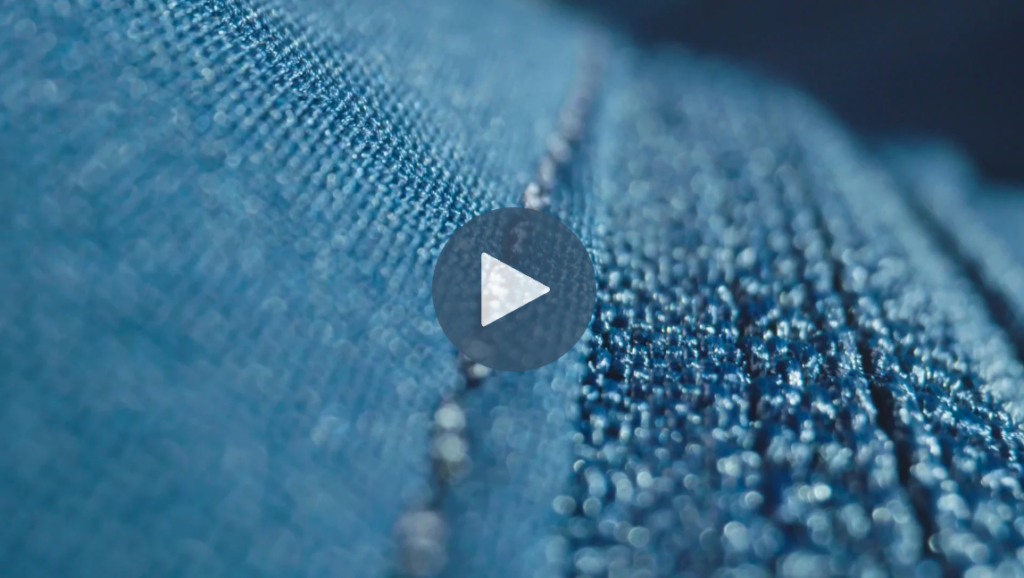
As making a completely mono-material jacket isn’t yet possible , Wedze found in Resortecs the ideal partner to bring its first fully recyclable ski jacket to life. The start-up’s Smart Stitch™ threads melt and disappear when exposed to temperatures above 190°C, ensuring that the non-recyclable zippers, press buttons and elastics bands can be easily separated from the polyester parts when it is time for recycling.
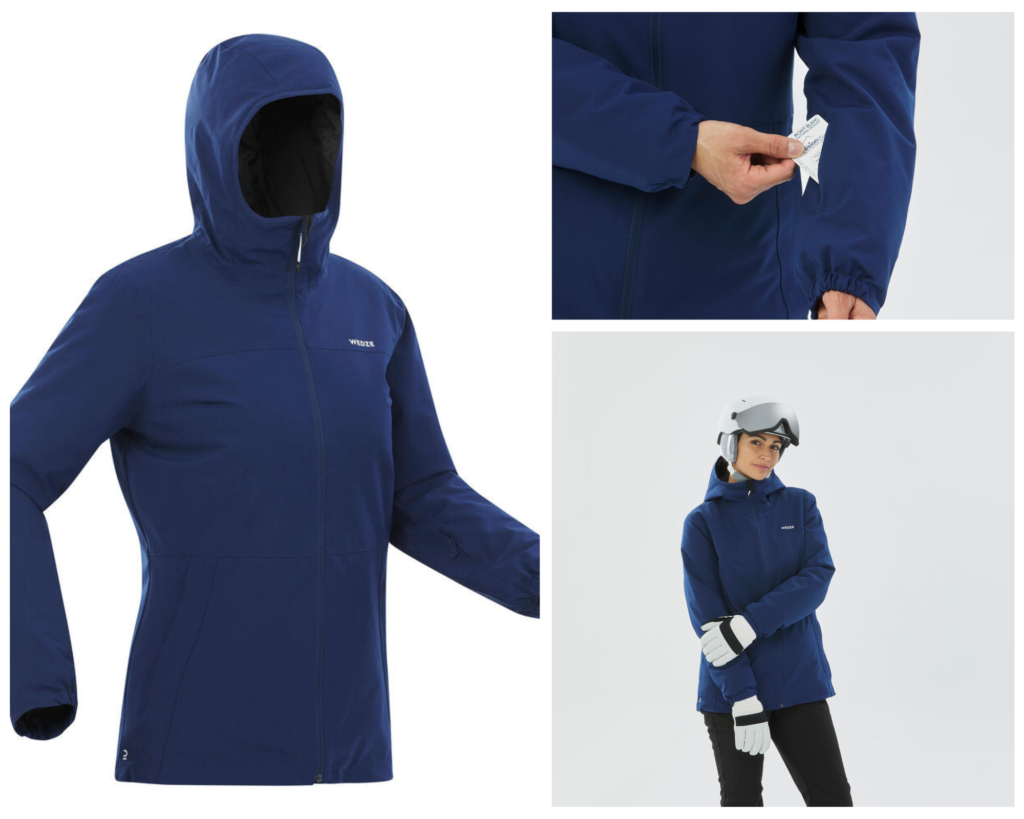
“Clients who want to join our circularity efforts can return their used jackets when they are no longer fit for use, and we’ll recycle them into new products.” Explains Fern S., Product Engineer and Sustainable Development Leader at Wedze.
“We are excited to launch a product with Wedze because, like the entire Decathlon group, they are known for their efforts to develop more sustainable products. The jacket looks great and has infinite possibilities for its next lifecycle.” – Cédric Vanhoeck, co-founder & CEO at Resortecs
Decathlon joins H&M and Bershka (Inditex Group) in our client roster and becomes the 3rd major global brand to launch products with Smart Stitch™ and Smart Disassembly™ in less than a year.
Skiers who don’t want to compromise on sustainability when hitting the slopes can find the disruptive jacket at Decathlon stores in Spain and online at www.decathlon.com for all other European markets.
Resortecs – REcycling, SORting, TEChnologieS – is an award-winning start-up that develops design-for-disassembly solutions. We drive full circularity in fashion with heat-dissolvable stitching threads and thermal disassembly systems that make recycling easy.
For further inquiries:
Davidson Leite
Communications & Branding Lead
[email protected]
The fashion-tech startup that facilitates industrial-scale textile recycling is one of the 74 high-potential businesses chosen in the most competitive selection of the European Innovation Council (EIC) Accelerator.
BRUSSELS, BELGIUM – Brussels-based startup Resortecs has been selected to receive a grant worth €2.5M from the EIC Accelerator. The startup enables industrial-scale recycling in fashion thanks to high-quality, automated garment disassembly.
Currently, less than 1% of all clothing produced is recycled, largely due to the high costs and complexity in separating different textile materials prior to recycling. Resortecs solves this issue with two patented innovations: Smart Stitch™, heat-dissolvable stitching threads, and Smart Disassembly™, an industrial oven capable of separating the different components of clothing made with Smart Stitch™, all without compromising the quality or creativity of clothing.
Aligned with the EU efforts to accelerate circular fashion and progressively halt fast-fashion production, Resortecs is one of the 74 startups selected out of over 1000 applicants in what is the most competitive funding round from the EIC Accelerator. The high-potential companies will each receive grants and/or equity investments, depending on their needs.
Mariya Gabriel, Commissioner for Innovation, Research, Culture, Education and Youth said:
The new wave of innovation is currently led by deep tech start-ups that target societal challenges. I am happy to see so many of them applying to the EIC, in particular from countries that are catching up in their levels of research and innovation performance. Thanks to the European Innovation Council, they will get the support they need to accelerate their growth and lead on the next wave of deep tech.
Founded in 2017 by Cédric Vanhoeck and Vanessa Counaert, in 2021 Resortecs had already raised over €1.8M to fund R&D and start piloting their disassembly solution, now validated by over 30 global fashion giants. Winners of several awards – from the H&M Foundation Global Change Award in 2018 to the 2022 Female Founder Challenge organized by VivaTech and Société Générale just last week – the startup counts on renowned supporters, including La Maison des Startups LVMH in France, Desigual’s Awesome Lab in Spain, and the BMW Foundation’s RESPOND Accelerator in Germany.
We are thrilled to have been selected by the EIC. This sum is a stepping stone to close our current €5M fundraising round – the most ambitious so far. We want to double the team, produce new continuous disassembly systems and scale our thread production to answer the ramping demand for circular solutions coming from the EU textile industry. – Cédric Vanhoeck, co-founder & Executive Lead.
Resortecs’ Smart Stitch™ has already been used in collections such as “Genesis” in collaboration with the American made-to-measure jeans brand Unspun and with H&M for the “Circular Design Story” capsule collection. A new partnership with Spanish giant Inditex is set to hit the stores this summer. By the end of the year, the French Decathlon will launch its first model with Resortecs’ thread: a fully circular ski jacket.
Join us.
Subscribe to our newsletter.
By subscribing, I agree with having my personal data stored and processed by Resortecs so I can receive future updates and marketing offers.
